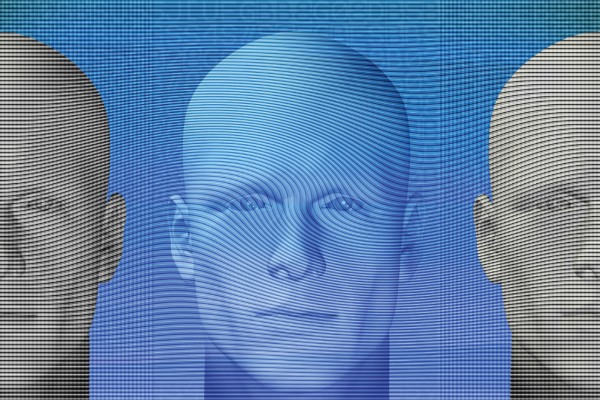FTC releases consumer privacy tips
By: CORREY E STEPHENSON//November 19, 2012//
Agency notes potential issues with facial recognition technology

With the use of facial recognition technology on the rise, the Federal Trade Commission has released a report with recommendations on how companies can protect consumers’ privacy.
“Facing Facts: Best Practices for Common Uses of Facial Recognition Technology” notes that the technology is being used in a broad variety of contexts, from online social networks to digital signs and mobile apps.
Companies use the data to deliver targeted advertising, identify anonymous individuals and even to assess the emotional reaction of individuals engaged with a movie or a video game.
But some individuals wish to remain private and the data is susceptible to security breaches and hacking, the agency cautioned, and there’s an opportunity for companies to help shape how things play out.
“Fortunately, the commercial use of facial recognition technologies is still young,” the report states. “This creates a unique opportunity to ensure that as this industry grows, it does so in a way that respects the privacy interests of consumers while preserving the beneficial uses the technology has to offer.”
Referencing the report on privacy it issued earlier this year, the FTC recommended that companies use a “privacy by design” methodology when developing their facial recognition technology.
Reasonable security protections should be in place for the data collected, the agency said, with methods to determine when to keep information and when to dispose of it.
Steps should be taken to make consumers aware that they are engaging with such technology and have a choice regarding whether their information is collected.
The agency also urged companies to consider the relative level of sensitivity of the data collected. For example, digital signs using facial recognition technology should not be used on playgrounds or other places where children congregate, the FTC advised.
Online social networks should provide consumers with clear notice about the feature, how it works, what data will be collected and how the data will be used, according to the report. The agency also recommended that users be given an easy-to-use opt out and the ability to have their previously collected data deleted.
Two situations require affirmative consent before to the use of facial recognition technology, the FTC said.
First, consent should be obtained from consumers before companies use data in a different way than they represented they would use it when it was collected. Second, absent consent, companies should not use facial recognition technology to identify anonymous images of a consumer to someone who could not otherwise identify the person.
“The recommended best practices contained in this report are intended to provide guidance to commercial entities that are using or plan to use facial recognition technologies in their products and services,” the report states.
“However, to the extent the recommended best practices go beyond existing legal requirements, they are not intended to serve as a template for law enforcement actions or regulations under laws currently enforced by the FTC.”
FTC commissioners were not unanimous in backing the report. FTC Commissioner J. Thomas Rosch issued a dissenting statement with the report’s release.
“I do not believe that such far-reaching conclusions and recommendations can be justified at this time,” he wrote. “There is no support at all in the [report] for them, much less the kind of rigorous cost-benefit analysis that should be conducted before the commission embraces such recommendations.”
Legal News
- Former Wisconsin police officer charged with 5 bestiality felony counts
- Judge reject’s Trump’s bid for a new trial in $83.3 million E. Jean Carroll defamation case
- The Latest: Supreme Court arguments conclude in Trump immunity case
- Net neutrality restored as FCC votes to regulate internet providers
- Wisconsin Attorney General asks Congress to expand reproductive health services
- Attorney General Kaul releases update at three-year anniversary of clergy and faith leader abuse initiative
- State Bar leaders remain deeply divided over special purpose trust
- Former Wisconsin college chancellor fired over porn career is fighting to keep his faculty post
- Pecker says he pledged to be Trump campaign’s ‘eyes and ears’ during 2016 race
- A conservative quest to limit diversity programs gains momentum in states
- Wisconsin prison inmate pleads not guilty to killing cellmate
- Waukesha man sentenced to 30 years for Sex Trafficking
WLJ People
- Power 30 Personal Injury Attorneys – Russell Nicolet
- Power 30 Personal Injury Attorneys – Benjamin Nicolet
- Power 30 Personal Injury Attorneys – Dustin T. Woehl
- Power 30 Personal Injury Attorneys – Katherine Metzger
- Power 30 Personal Injury Attorneys – Joseph Ryan
- Power 30 Personal Injury Attorneys – James M. Ryan
- Power 30 Personal Injury Attorneys – Dana Wachs
- Power 30 Personal Injury Attorneys – Mark L. Thomsen
- Power 30 Personal Injury Attorneys – Matthew Lein
- Power 30 Personal Injury Attorneys – Jeffrey A. Pitman
- Power 30 Personal Injury Attorneys – William Pemberton
- Power 30 Personal Injury Attorneys – Howard S. Sicula











